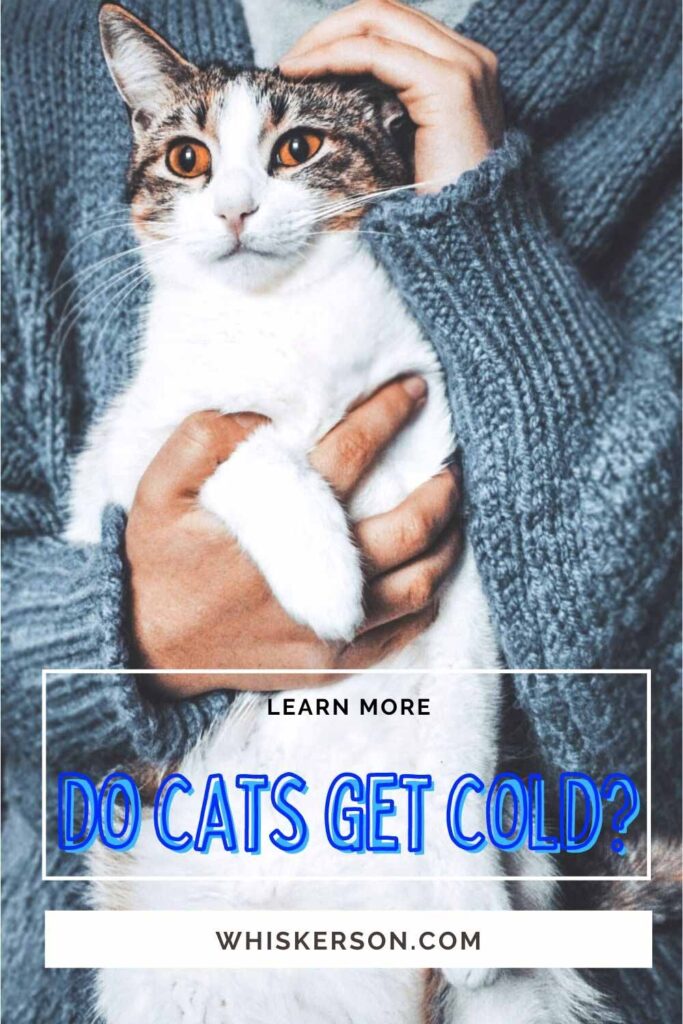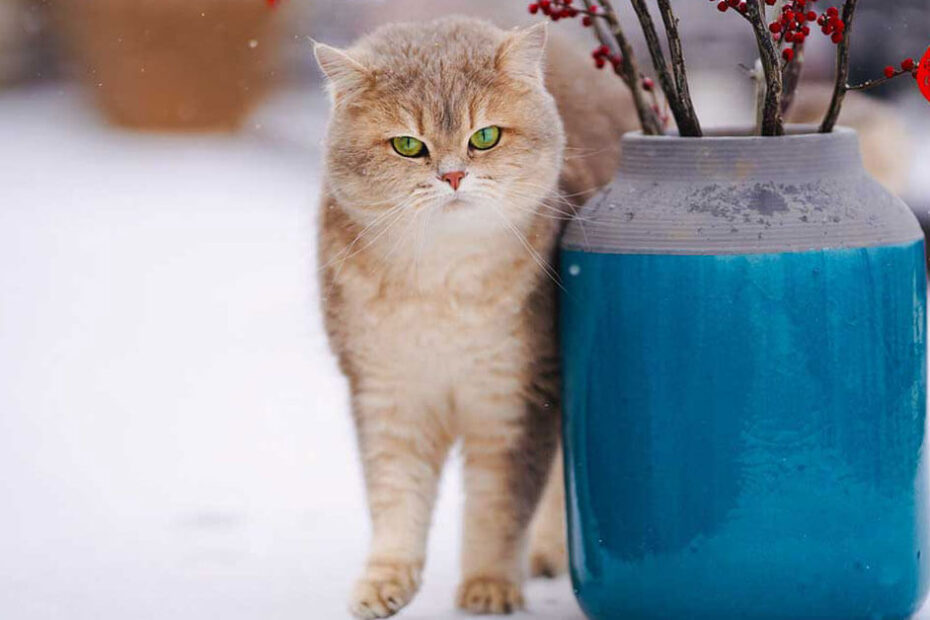Cats are incredibly independent creatures, but they still need our care and attention from time to time. But do cats get cold, and is there anything you should do about it?

While cats typically handle cold temperatures quite well, they CAN get cold, especially if the weather drops below 45 degrees.
In temperatures that are below freezing, cats are susceptible to hypothermia.
The best way to prevent this is by letting your cats come indoors at night.
So cats can get cold, but what factors play into this, and what should you look for? How can you make sure your cats stay warm?
Let’s find out!
When Do Cats Get Cold?
You have probably noticed that sitting with a cat in your lap is like having your own mini space heater. This is because cats run on a higher internal body temperature than people do—102 degrees versus our 98.6. As such, they are less sensitive to the cold than we are.
However, cats can still get cold. Most cats find temperatures below 45 degrees unpleasant at best, and they can become sick when cold weather plunges temperatures to less than 32 degrees, or below freezing.
Some cats are more or less resilient to the cold than others, and this depends on their coats, their weight, and any pre-existing medical conditions they may have.
Cats with thicker coats, such as Persian cats, fare a little better in the cold, but cats with thin or no coats, most notably Rex breeds, should never be outdoors in cold temperatures. A hairless cat may even require sweaters while indoors.
Heavier cats are also a bit more resistant to the cold, but being too heavy comes with several other problems. Cats with other medical issues like eye or heart problems are more likely to develop hypothermia, and they should remain indoor cats, just like hairless ones.
What Are The Signs Of A Being Cold Cat?
Fortunately, it is pretty easy to spot the signs that indicate your cat is cold. A cold cat will often shiver, search for warm places to find refuge, or huddle in a hunched position. Their ears, nose, and tail will probably also be much cooler to the touch than usual.
If the cat is feeling chilly while they are outdoors, they will sit outside the door and request to be let in with meows or by rubbing the door with their paws.
If a cat has been exposed to frigid temperatures for too long, it will start to show symptoms of hypothermia.
If you notice any of the following signs, get your cat to the nearest vet immediately:
- Confusion, unusual mental slowness
- Sudden trouble breathing
- Highly dilated pupils
- Stiffness in the muscles, trouble moving
- Slowed heartbeat
- Low blood pressure
- In incredibly severe cases, a coma, lack of response
Another thing you can do to improve a hypothermic cat’s situation is to wrap them in a towel and keep them in it as you transport them to the vet.
How To Keep Cats Warm?
One of the best ways to keep your cats warm is mutually beneficial—cuddling with your cat will keep you both warm. While some cats are not especially cuddly, they may be more inclined to sit with you if they have just come in from the cold. If not, there are other things you can do.
Leaving out a plush bed, blanket, or towel in a warm spot is another great method for allowing cats to get some rest and warm-up. Older cats will benefit from a bed that has been designed specifically to soothe sore joints. Keeping your cat fed will also keep their coat in top shape and help them to stay warm.
Younger cats might appreciate a game to warm up, such as chasing a ball or toy at the end of a cat wand.
If you have to leave your home for an extended amount of time, make sure that your heating system is working, and keep the temperature above 45 degrees so your cat can stay comfortable.
Final Thoughts On: Do Cats Get Cold?
Although cats are highly capable of handling the cold, and they are typically more resilient to it than the average person, they can still get cold. Never leave your cats out overnight, especially if temperatures tend to drop below freezing, as they can succumb to hypothermia.
Hairless cats and cats with medical issues like heart problems should remain indoors, as they are extra sensitive to the cold.
